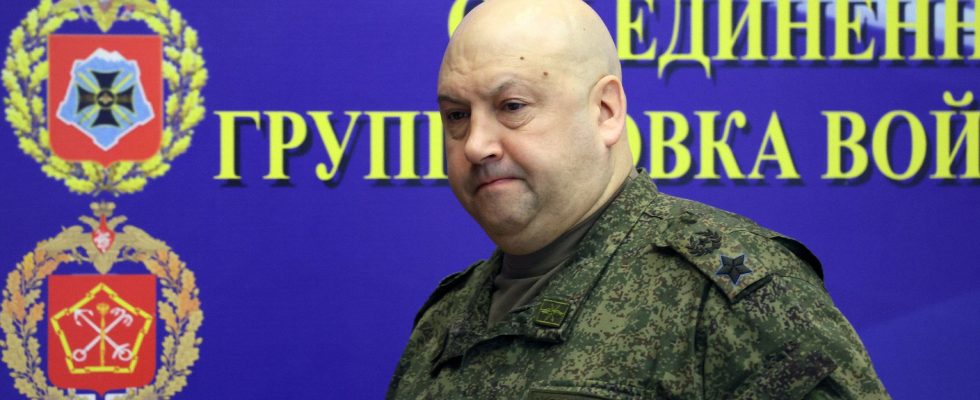The links with the paramilitary group Wagner and its leader Evgueni Prigojine seem to have got the better of General Sergueï Sourovikine. Nicknamed “General Armageddon” for his brutal methods, he was one of the iconic commanders of the Russian assault on Ukraine. “Army General Sergei Surovikin has been removed from his post,” the state news agency Ria Novosti said on Wednesday August 23, citing a source familiar with the internal army movements.
Since Wagner’s abortive rebellion, this influential general had disappeared from public space, a sign of his downgrading according to experts. On the night of June 23 to 24, when Evgueni Prigojine had just called for the overthrow of the Russian military command and his mercenaries were rushing towards Moscow, Sergei Surovikin appeared in a video, shaved head, martial look, a weapon placed on the right thigh. “I am addressing the fighters and leaders of the Wagner group. We are of the same blood, we are warriors. I ask you to stop,” he said, his speech slow, his face unshaven, staring sternly at the camera. “Before it’s too late,” he insists.
Less than 24 hours later, the commander of the mercenary army Yevgueni Prigojine reversed course and went into exile in Belarus. But Sourovikine’s appeal to reason, published very quickly and considered constrained by some observers, was not enough to prevent the general from being sidelined, as he was linked to Wagner. Because this 56-year-old soldier with a sinister air, reputed to be ruthless, has long been considered the main ally of the paramilitary group within the Russian Ministry of Defence, and this while Wagner was demanding the head of Minister Sergei Shoigu and the Chief of Staff, Valery Gerasimov.
Strong support from Wagner
Yevgueni Prigojine even got Sergei Surovikin to become his main interlocutor last May, even though he insulted the Russian Defense Ministry, accusing it of depriving its mercenaries of ammunition. Before that, when General Surovikin was appointed commander of Russian forces in Ukraine in early October 2022, Wagner’s commander welcomed the appointment. Three months later, the general was replaced by the chief of staff, to the great displeasure of Wagner: in November, it was under the orders of Surovikin that the Russian troops had to withdraw from the city of Kherson and from the right bank of the Dnieper, in southern Ukraine. A defeat for Moscow.
The general was then the craftsman of an autumn and winter bombing campaign against Ukrainian energy infrastructures, supposed to bring the country down, but which did not succeed. After his replacement, Surovikin remained in the circle of commanders, enjoying a tough image, he, the veteran of the Soviet war in Afghanistan, the second Chechnya war in the 2000s and the brutal Syrian campaign of 2015 which earned him the nickname “Syrian Butcher”.
Strikes on hospitals in Syria
“He is a very well-known person, the military talks a lot about him. He has the reputation of being a demented, ruthless commander,” a renowned Russian military expert told AFP this fall, on condition of anonymity. Other experts point to his qualities as a commander. The “South” group of forces that he led until the fall in Ukraine was the one that took the most Ukrainian territory.
According to the influential military blog Rybar, followed by 1.2 million subscribers, the dismissal of Sourovikine de facto took place “immediately after” the Wagner rebellion, but this “is not necessarily a condemnation, but perhaps be just a temporary measure”. Before Ukraine, Sergei Surovikin, originally from Siberia, was one of the leaders of the Russian forces in Syria. The NGO Human Rights Watch accused him in 2020 of being one of those who “were able to take responsibility” for attacks on residential areas, schools and hospitals. In Russia, he is also known for having taken part in the failed coup attempt of 1991, which signed the death warrant of the USSR.
